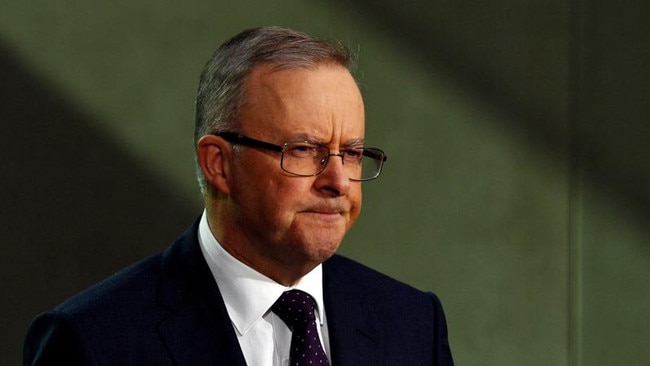Why it’s time for a wages-rates accord
A recession could be just around the corner, so it’s time for our leaders to take some tough decisions.

Australia is right on the edge of sliding into recession. In per capita terms it has already.
The GDP figures from the Australian Bureau of Statistics, which measure the total size of the economy, edged up just 0.2 per cent in the March quarter.
That’s an annualised growth rate of just 0.8 per cent, as the Americans like to report their growth numbers.
With net immigration running at 100,000 or more a quarter, pouring people both into the Australian population more broadly and the workforce more specifically, growth per person turned negative.
It fell 0.2 per cent in the quarter.
So, while overall growth in the economy over the year to the March quarter was still 2.3 per cent – but mostly in the first six months, before the Reserve Bank interest rates rises had really started to bite – growth per person/capita over the year was just 0.3 per cent.
Basically, standing still – and sliding into the negative in the opening months of this year. With who knows what, but likely at best sluggish, in the June quarter just concluding.
This captures just how difficult and ugly, things could – probably, beyond stopping - now turn.
That the rate rises even before Tuesday’s are enough to send the economy into recession, with household budgets being so whacked that ability to save out of income is at its lowest level since 2008.
Yet the RBA will be forced to push its official rate still higher – and, for so long as Philip Lowe is governor, will push it higher, because of accelerating wages.
Bluntly, simply, if Treasurer Jim Chalmers wants to avoid further rate rises, he should be announcing the imposition of a 3 per cent ceiling on any increases in Commonwealth public sector wages for the next two years.
Indeed, this is exactly an appropriate issue for national cabinet.
That PM Albanese and Treasurer Chalmers lead all governments to agree a 3 per cent cap for two years on their public sector wage rises.
In short: a wages-rates accord.
Yes, with inflation running at 6 per cent-plus it would be punishing.
And yes, that still leaves the issue of private sector wages.
But the ‘alternative’, as Governor Lowe made very clear again Wednesday, would be far worse.
It would be, bluntly, a head-on war between wage rises and rate rises.
Does the average worker think they can ‘win’ that?
It would also get increasingly nasty between Canberra and the RBA.
In the short-run Canberra can win that battle – by replacing Lowe with a ‘more amenable’ new governor, when his term expires in mid-September.
But ‘amenable’ appointments have a habit of turning out less than so.
Ask our current treasurer’s hero Paul Keating about his appointment of ‘mate’ Bernie Fraser as RBA governor in 1989.
Fraser took his responsibility of fighting inflation seriously, and basically gave the country 25 years of low inflation and widespread prosperity.
He also, or so Keating believes to this day, ‘gave’ the nation John Howard as PM.
To say nothing of Gough Whitlam’s appointment of great Labor mate John Kerr as governor-general. Arguably the greatest own goal in Australian political history.




To join the conversation, please log in. Don't have an account? Register
Join the conversation, you are commenting as Logout